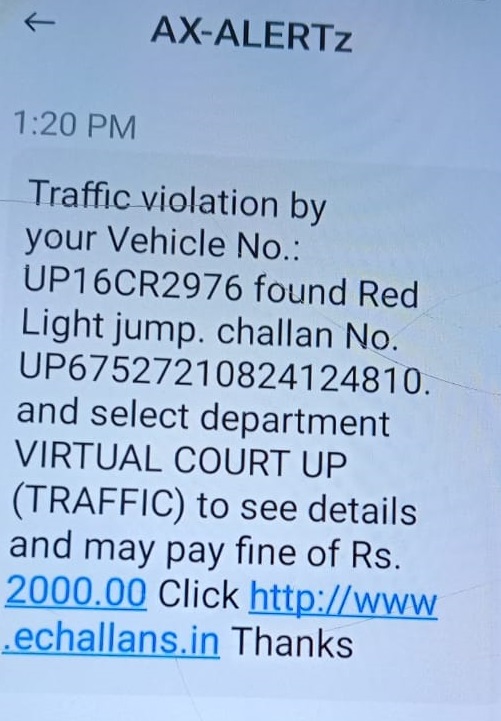In the digital age, fraud no longer knocks on doors — it arrives through notifications. What once began as deceptive calls or phishing messages has now evolved into a more insidious weapon: APK files disguised as official apps. These seemingly harmless downloads are quietly draining bank accounts and stealing personal data across India.
The latest victim, Shanan Noor, a resident of Paradise Apartment on Kurmi Road, Lucknow, learned this lesson the hard way.
A Fake Challan, A Real Loss
Noor received a phone call from someone claiming to be a traffic police officer. The caller informed him that a challan was pending against his vehicle and shared a link to view the notice. Trusting the source, Noor clicked and downloaded the APK (Android Package Kit) file attached. Within minutes, his smartphone was hijacked — and so was his bank account.
According to investigators, the hackers extracted his banking credentials and one-time passwords (OTPs). Two instant loans were then approved in his name — one for ₹10 lakh and another for ₹1.6 lakh — followed by credit card purchases worth ₹61,768.
By the time Noor noticed the suspicious bank alerts, his account had been wiped clean. He immediately froze his account and filed a complaint with the Lucknow Cybercrime Police Station. The Digital Forensics Unit is now tracking payment gateways and online data trails to locate the perpetrators.
The Digital Web of Deceit
Cybersecurity experts warn that APK files are becoming the new frontier of digital deception. Once installed, these files can implant spyware into an Android device, silently granting hackers access to personal data — from contact lists and photos to banking apps.
FCRF Launches CCLP Program to Train India’s Next Generation of Cyber Law Practitioners
Cybercrime expert and former IPS officer Prof. Triveni Singh, who has investigated thousands of online frauds, explained the psychology behind the scam:
“Today’s cybercriminals are not merely tech-savvy; they are masters of manipulation. They don’t need to hack your phone — they hack your trust. Messages about unpaid challans or police notices are designed to trigger compliance. Once you click, you’re caught in their digital web.”
Prof. Singh further warned that such crimes represent a “trust crisis” more than a technical failure.
“People assume installing an app is harmless, but one wrong download can compromise their entire identity. Fraudsters today don’t just steal money; they hijack your credit history and even your digital reputation,” he said.
‘Your Challan Is Pending’: The New Bait
Lucknow’s cyber police have reported a surge in scams involving fake traffic challans and government-themed apps. Criminals replicate official seals, insignia, and templates to appear authentic — a tactic that easily deceives unsuspecting citizens.
A senior police officer described it as “psychological warfare through technology.”
“These fraudsters study human behavior. They understand fear, urgency, and authority — and they exploit it perfectly,” the officer said.
Protecting Yourself from APK Scams
- 1. Never download unknown files or apps, even if they appear to come from a government agency or bank.
- 2. Verify challans only on the official portal — echallan.parivahan.gov.in.
- 3. Keep your device’s security patches and antivirus software updated.
- 4. Report cyber fraud immediately by calling 1930 or visiting cybercrime.gov.in.
India’s Growing Digital Risk
With over 800 million smartphone users, India is witnessing an explosion in mobile-based cybercrimes. Experts warn that APK-related frauds could double by 2025 if awareness remains low.
Prof. Triveni Singh urged for a stronger focus on digital literacy:
“Education is the most powerful firewall. The fight against cybercrime isn’t just the responsibility of law enforcement — every citizen must become their own first line of defense. Vigilance is the only true security.”


